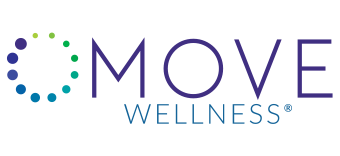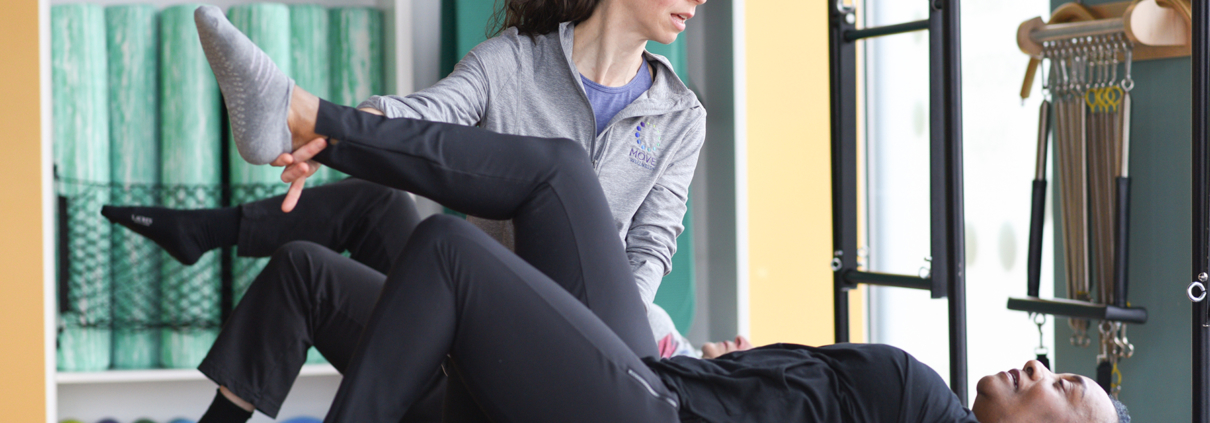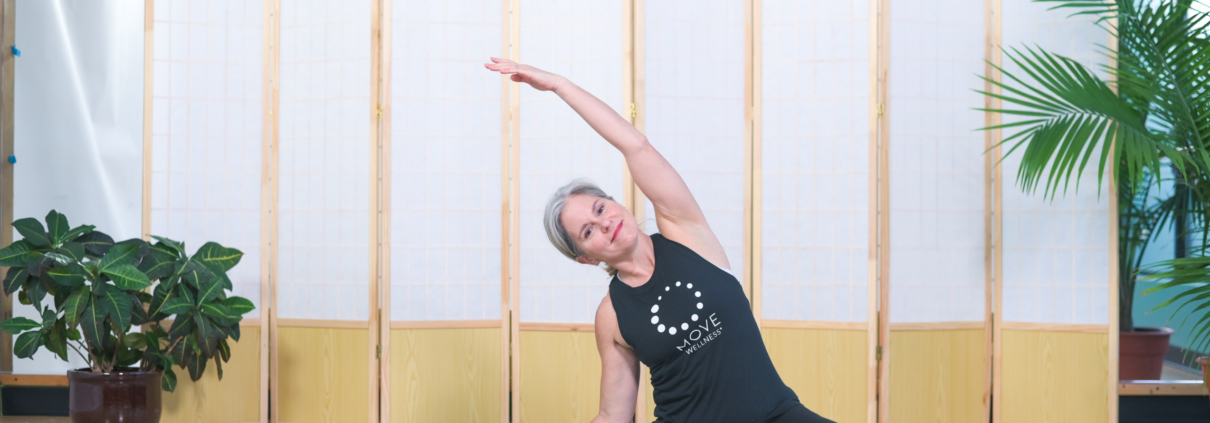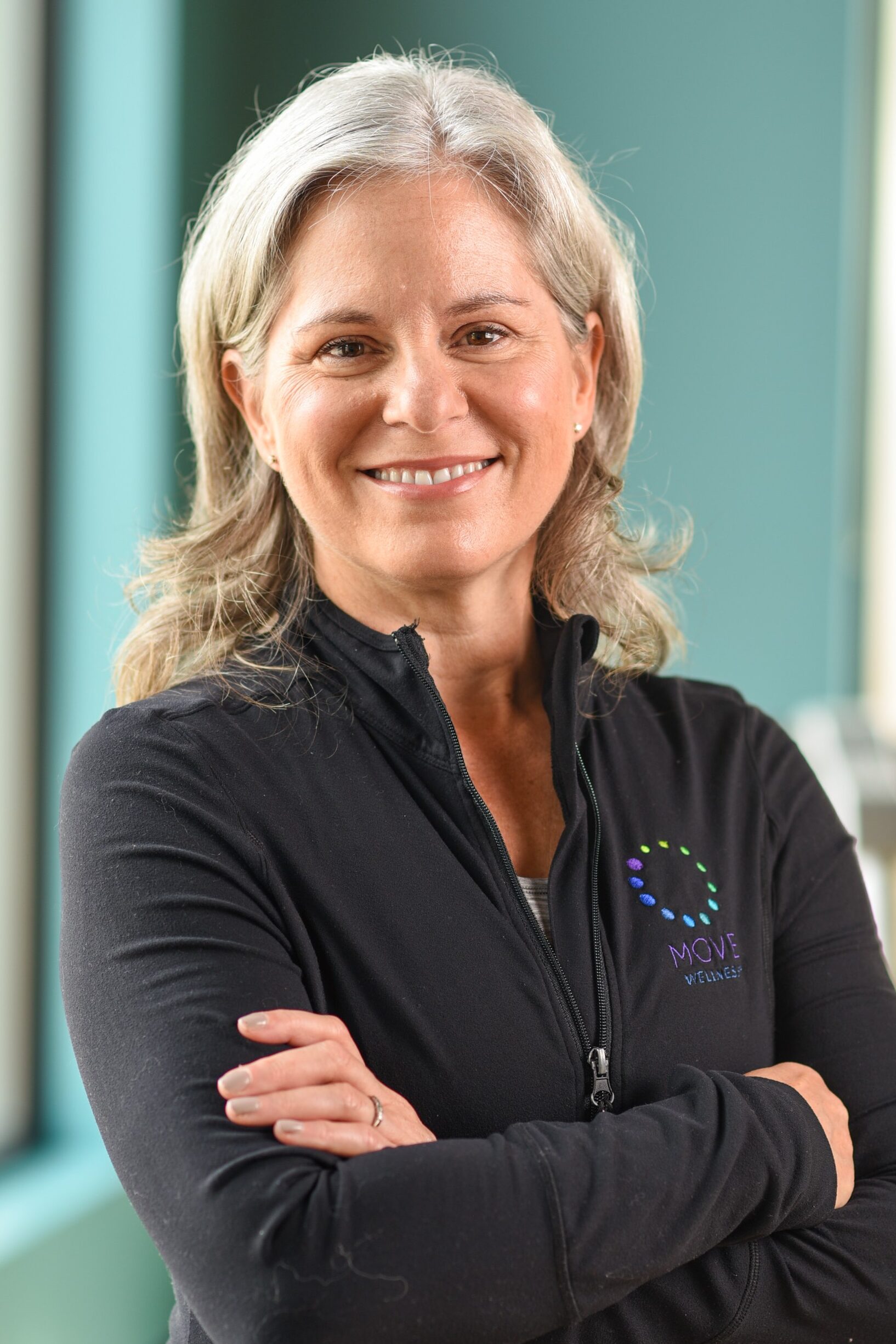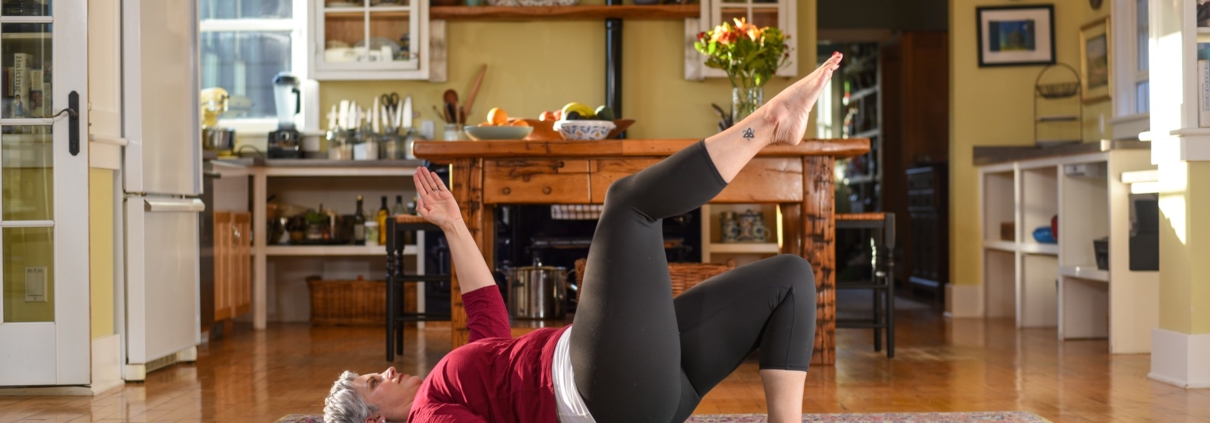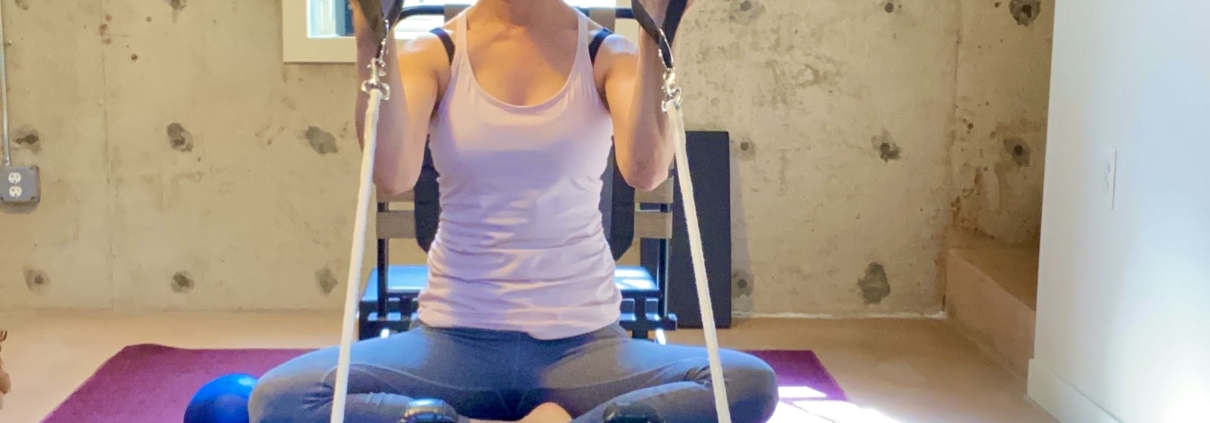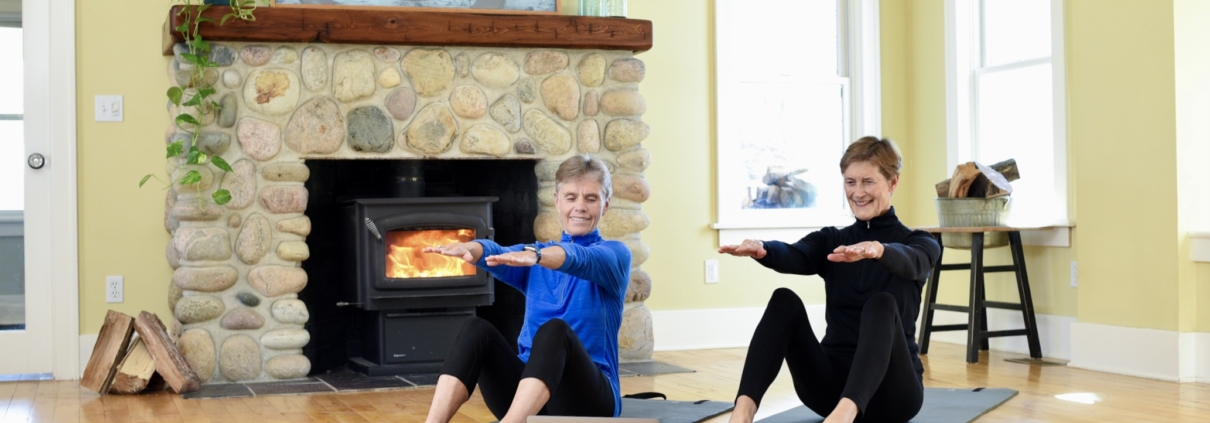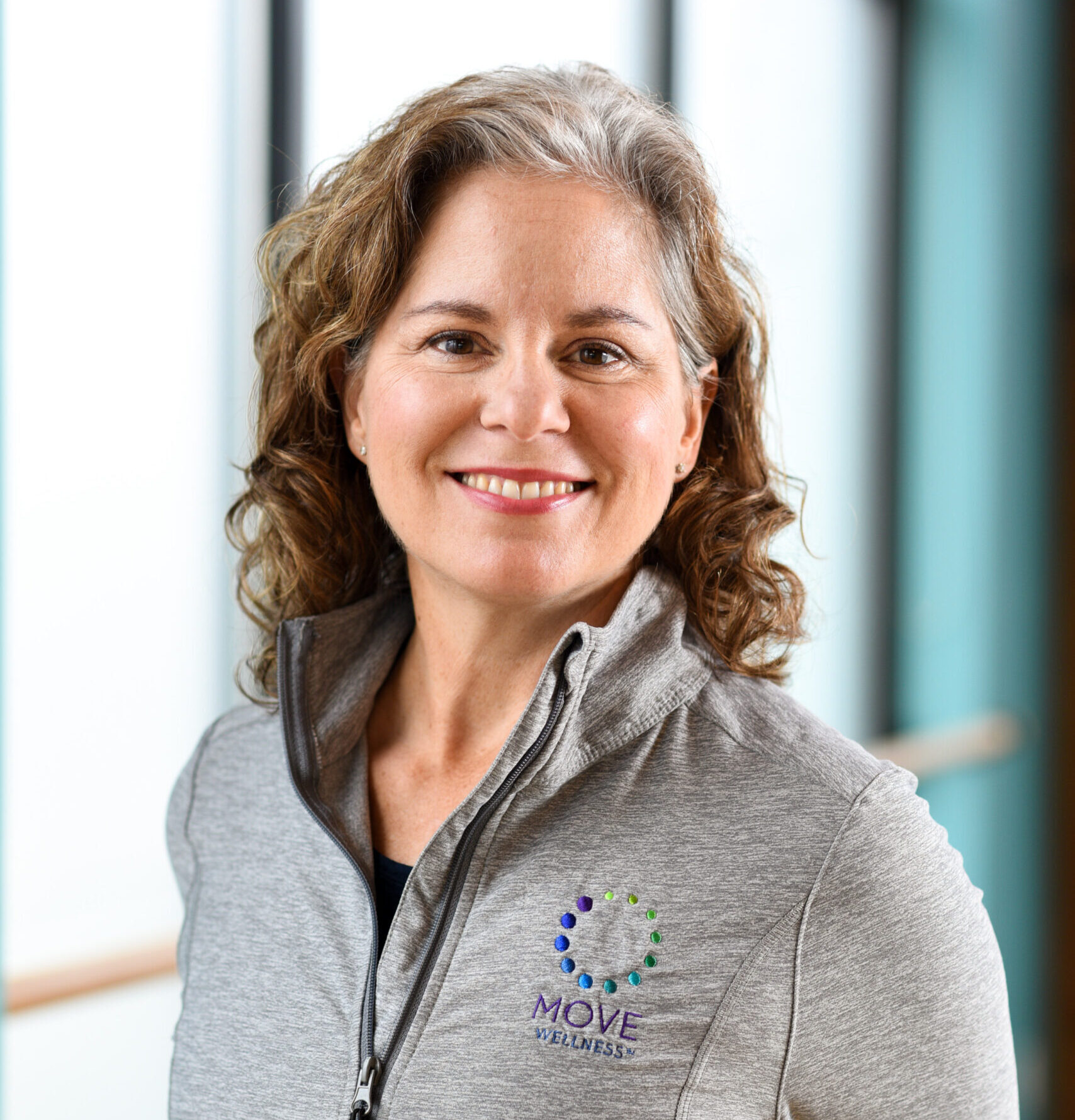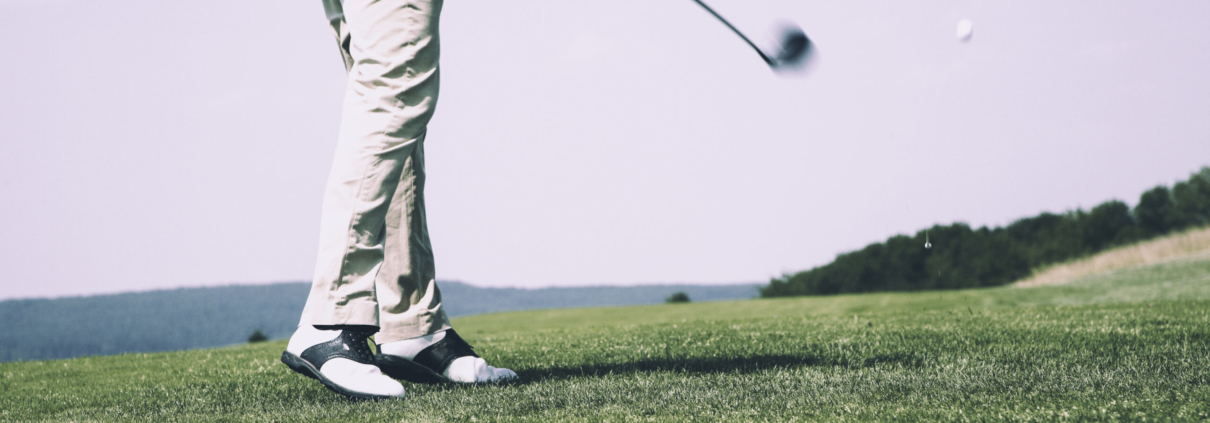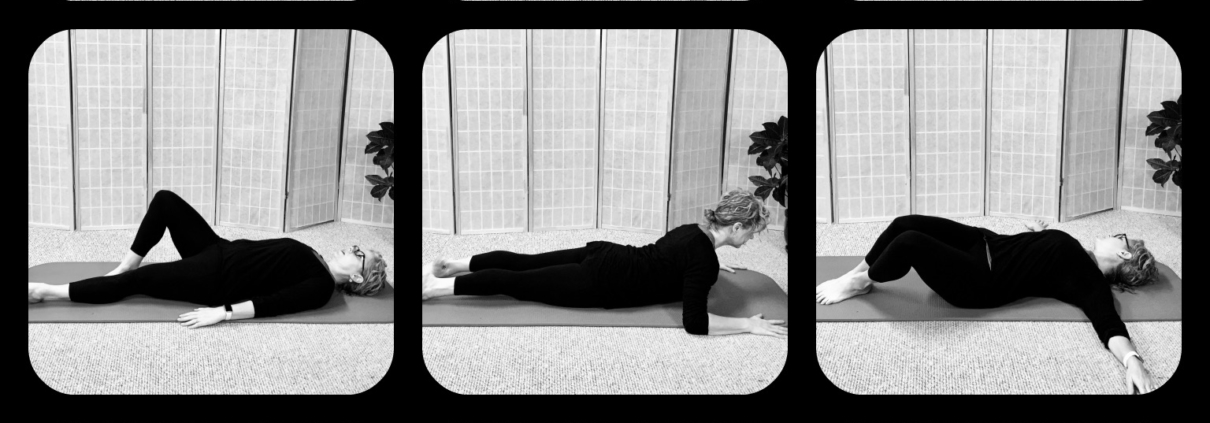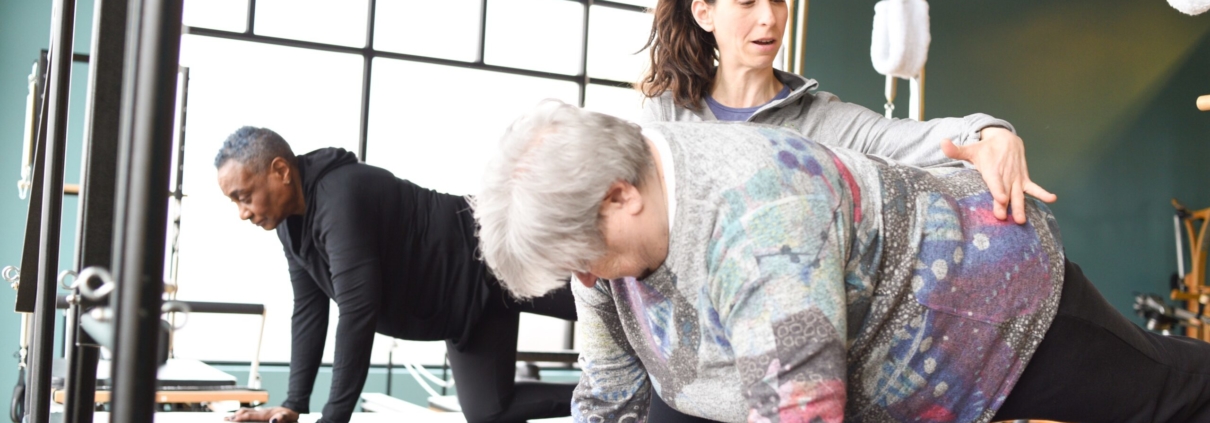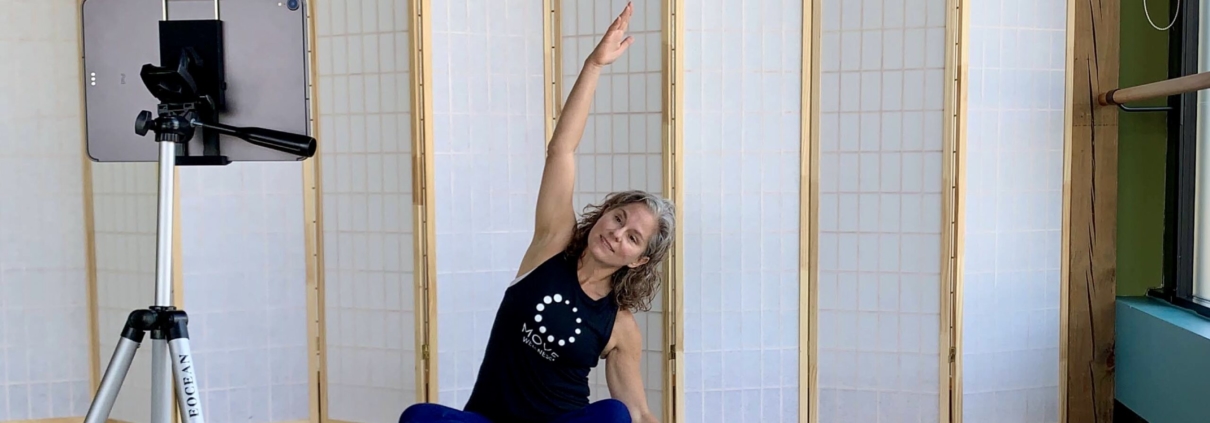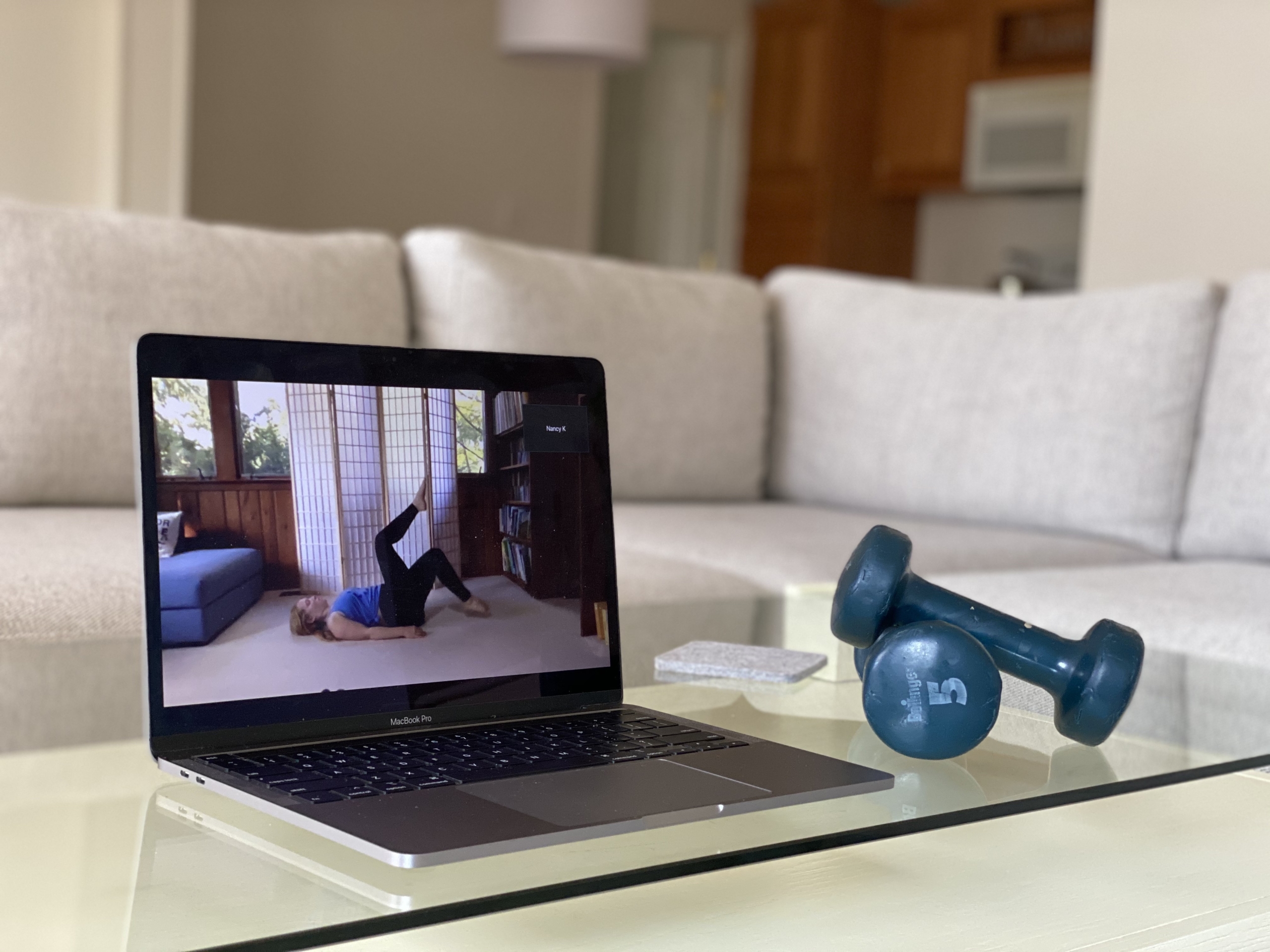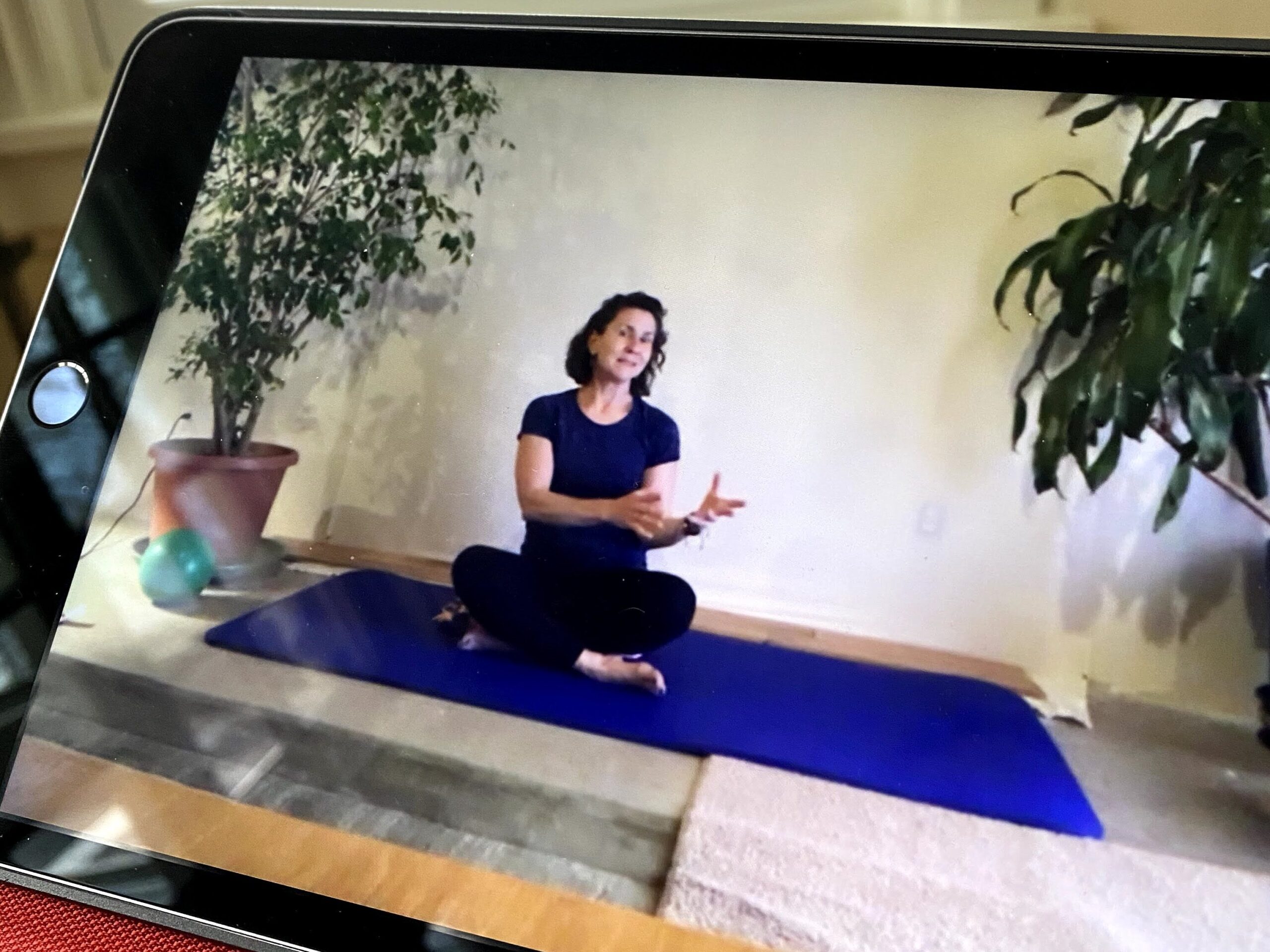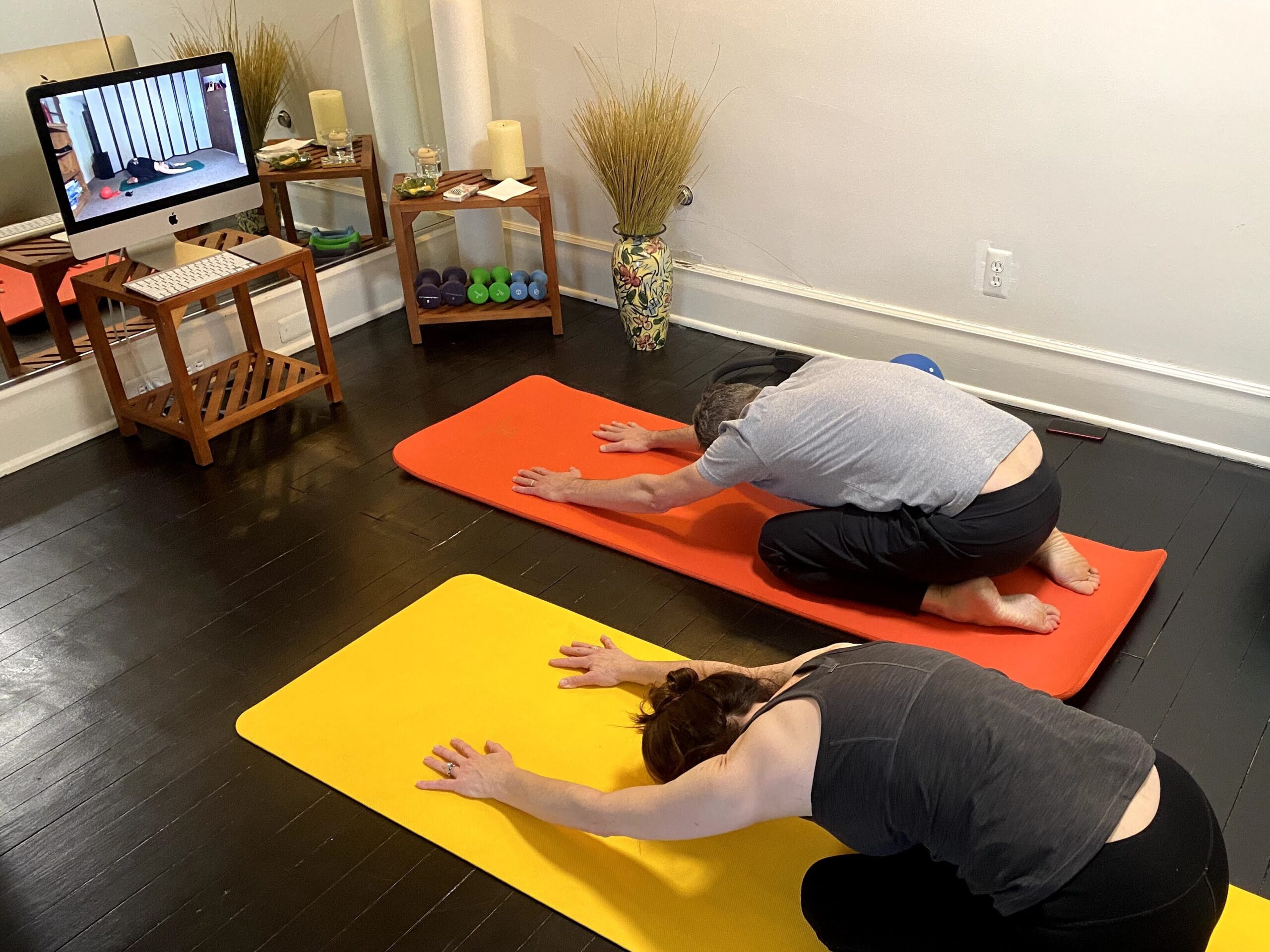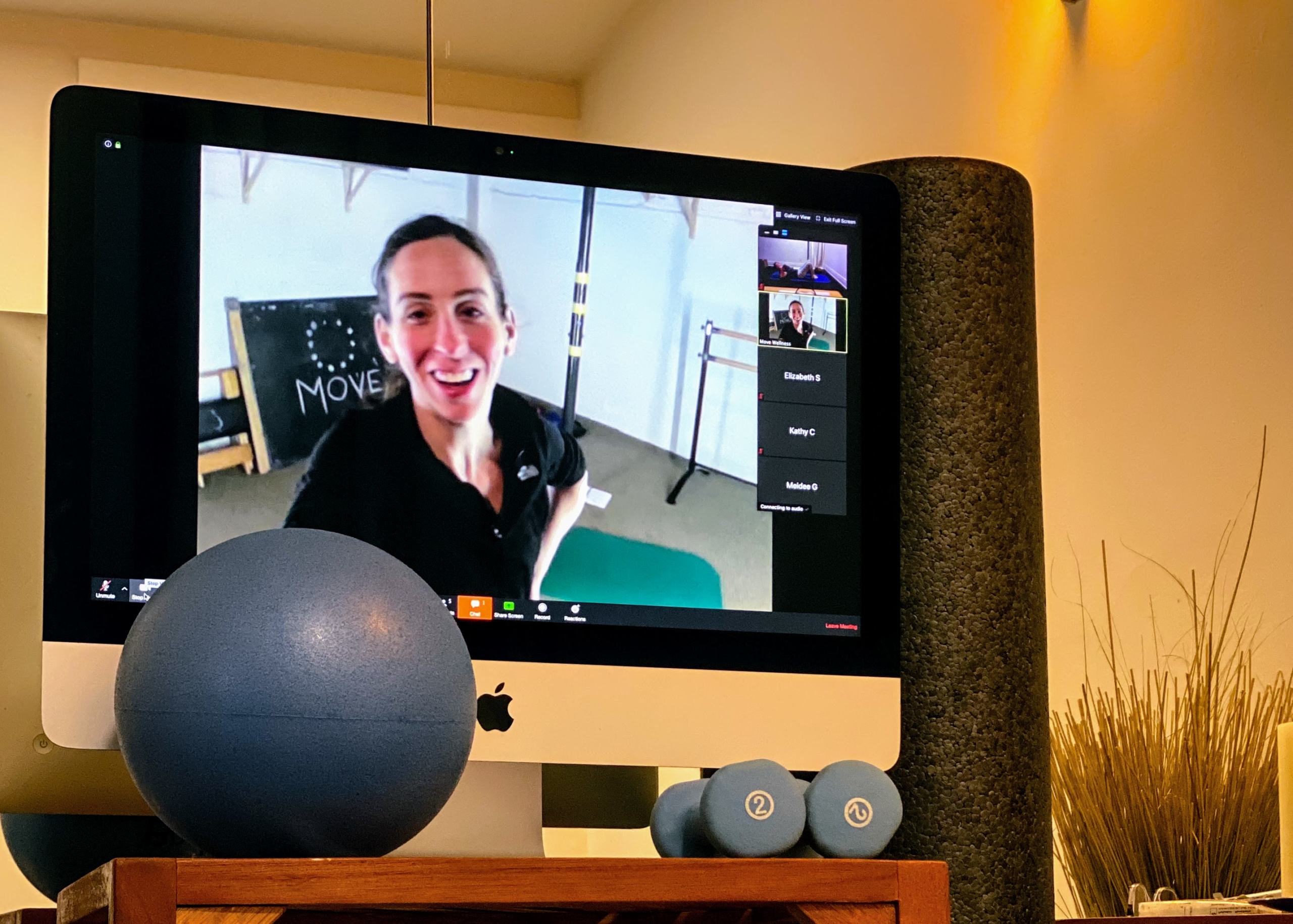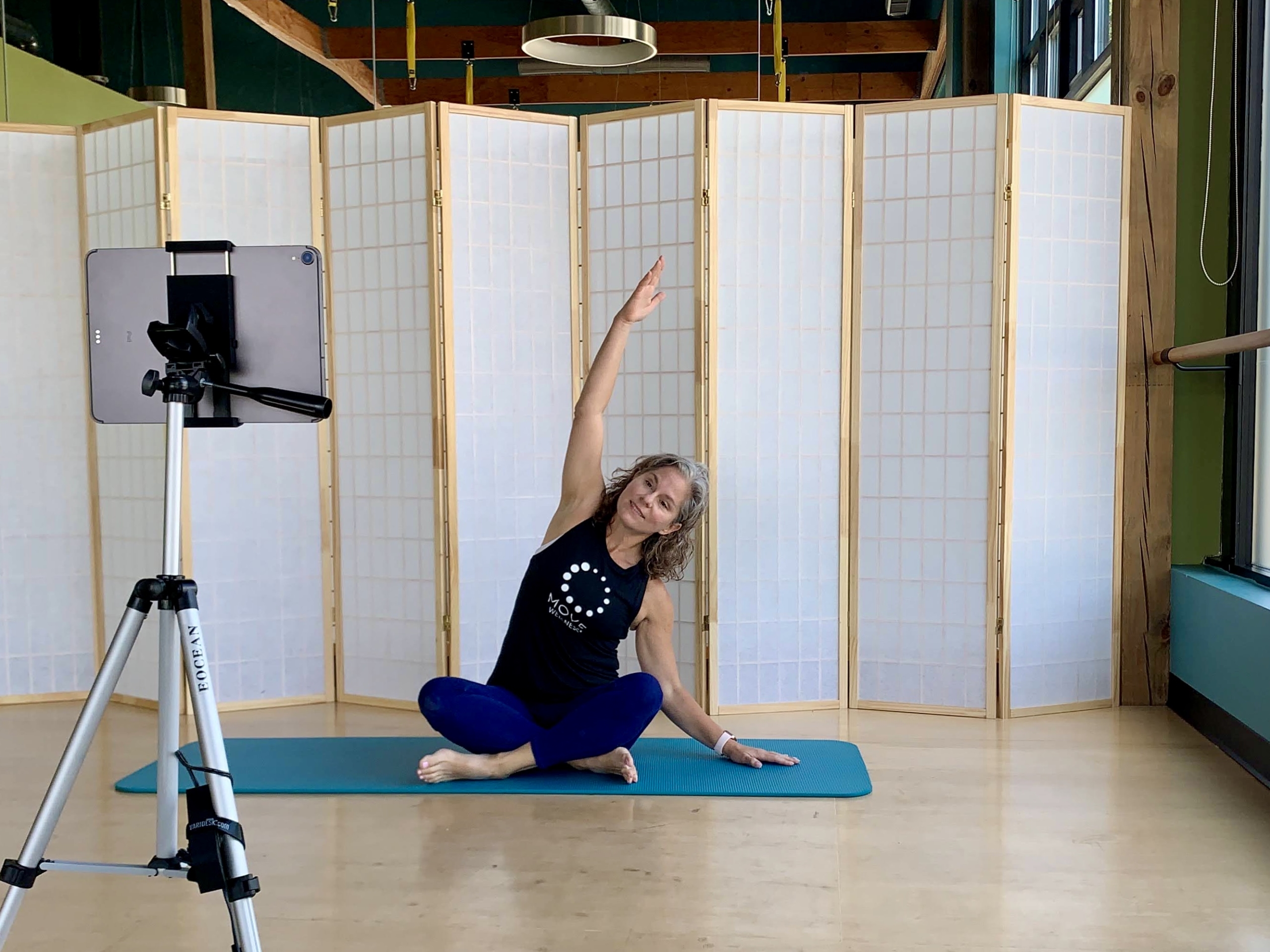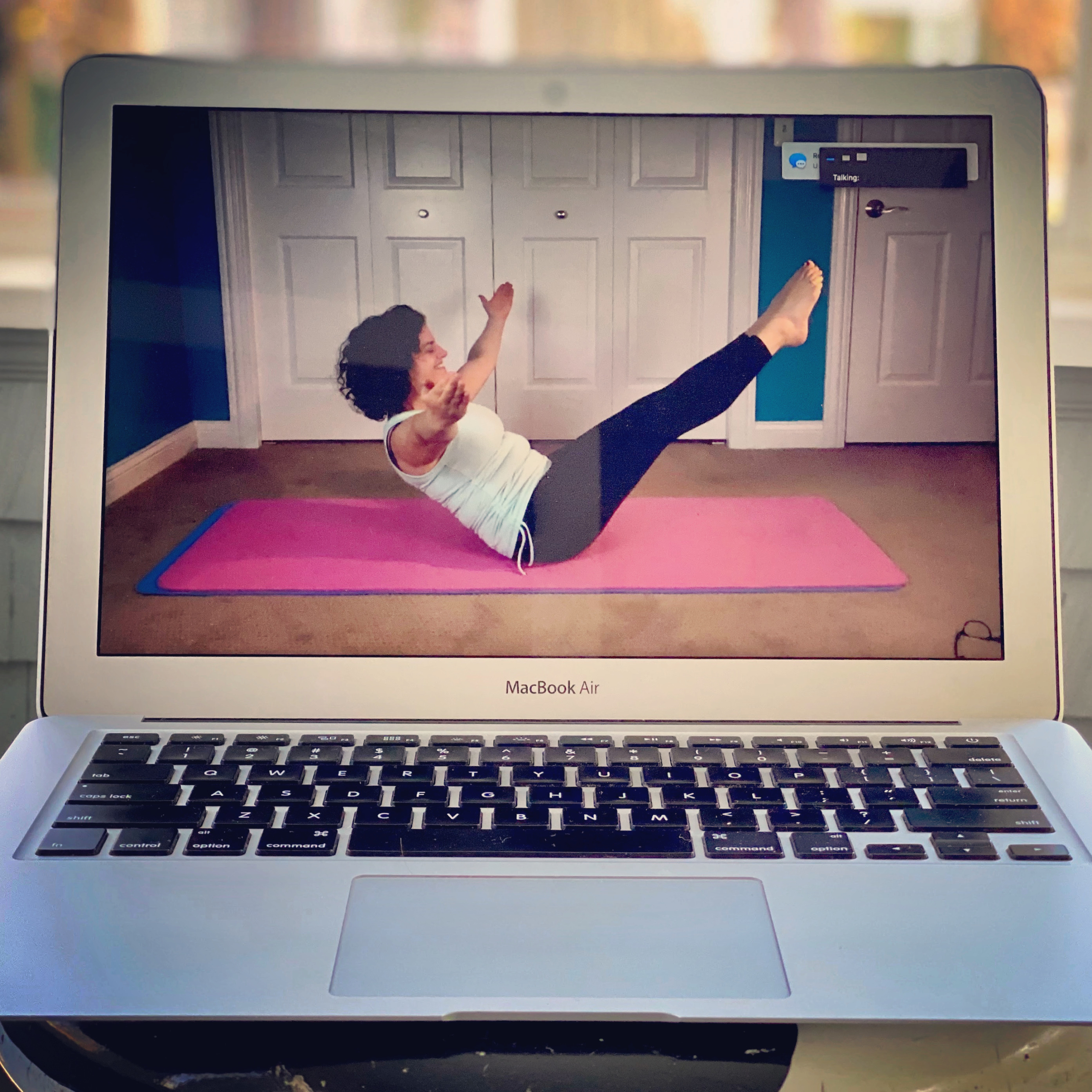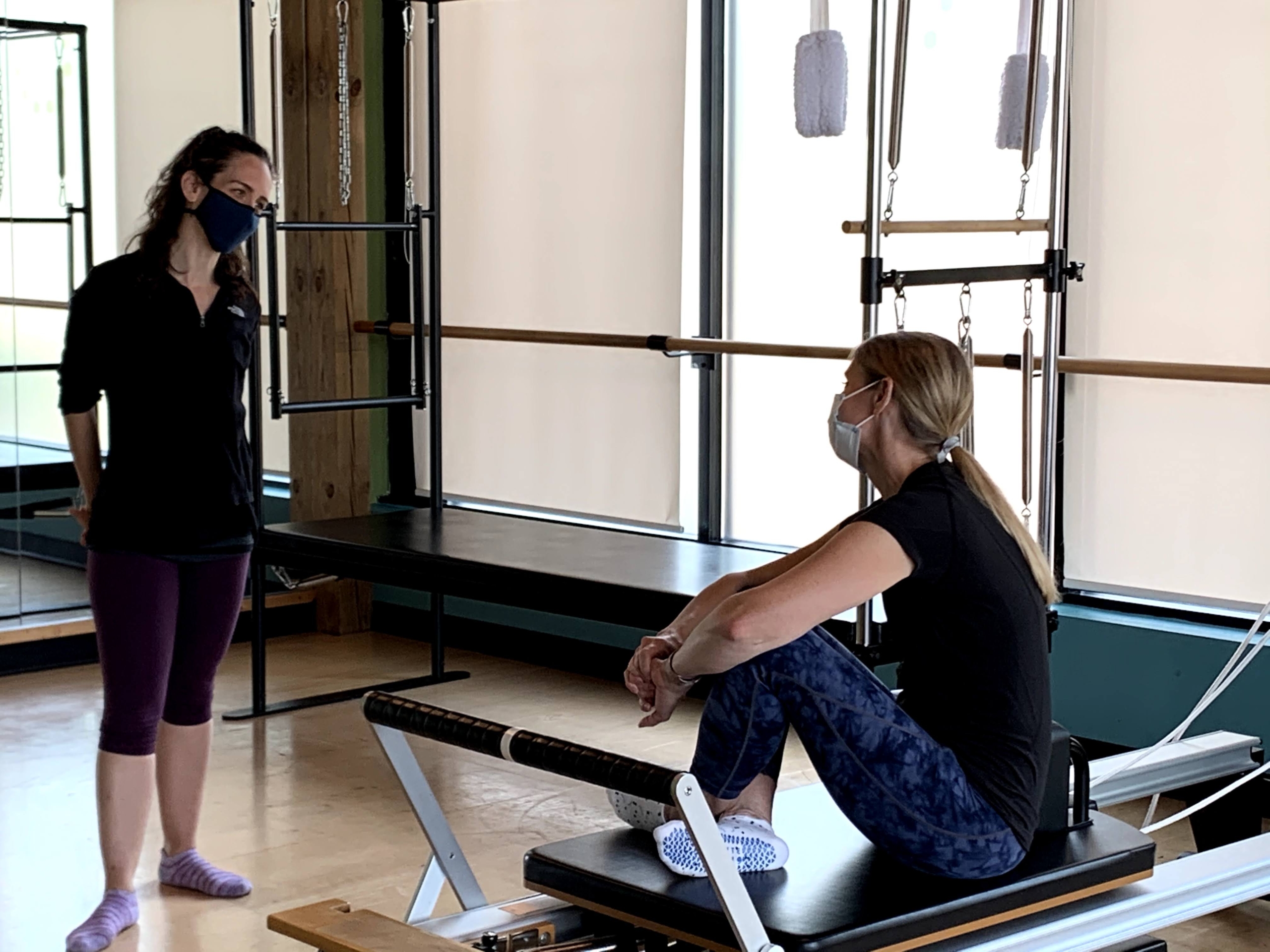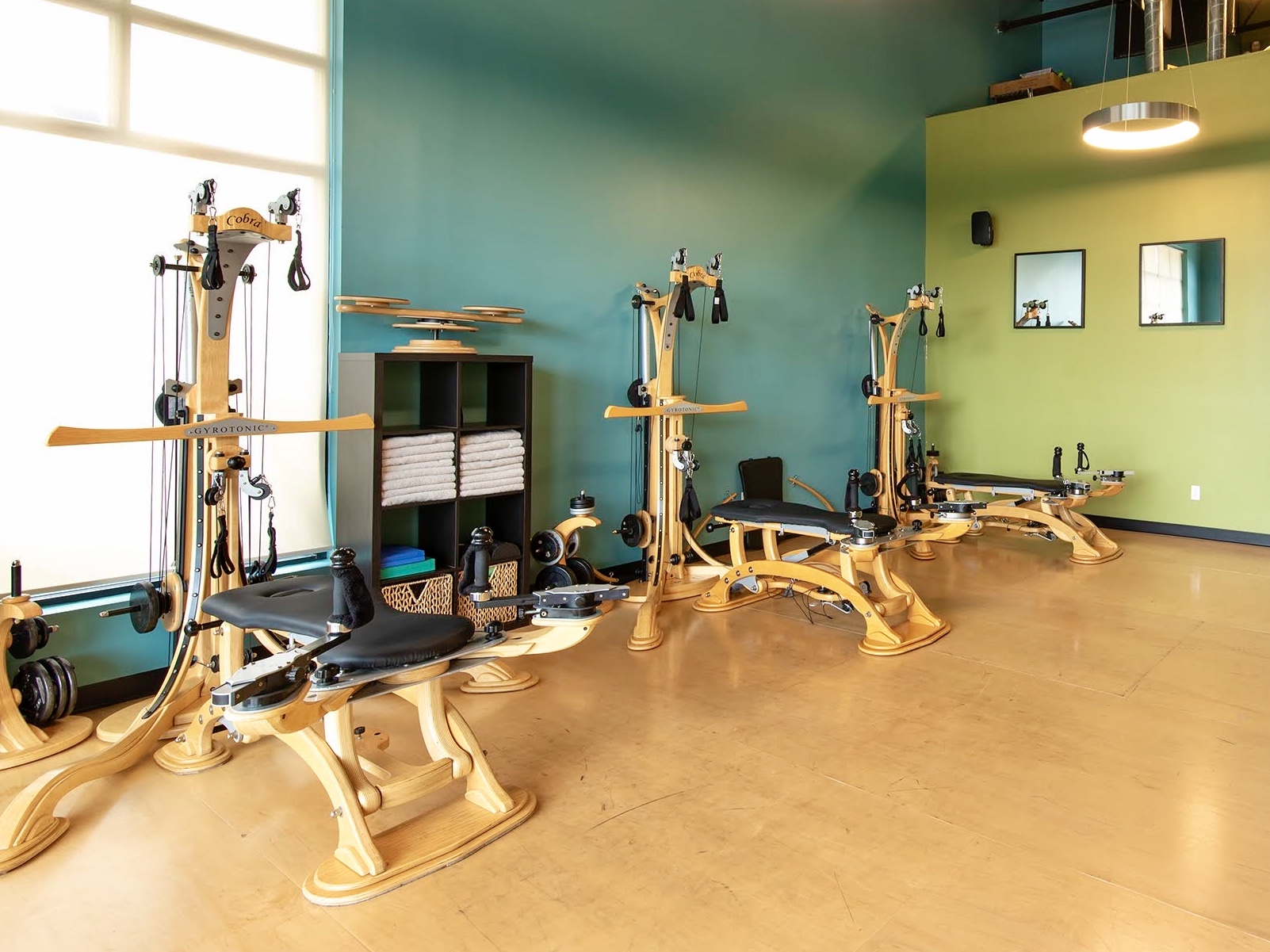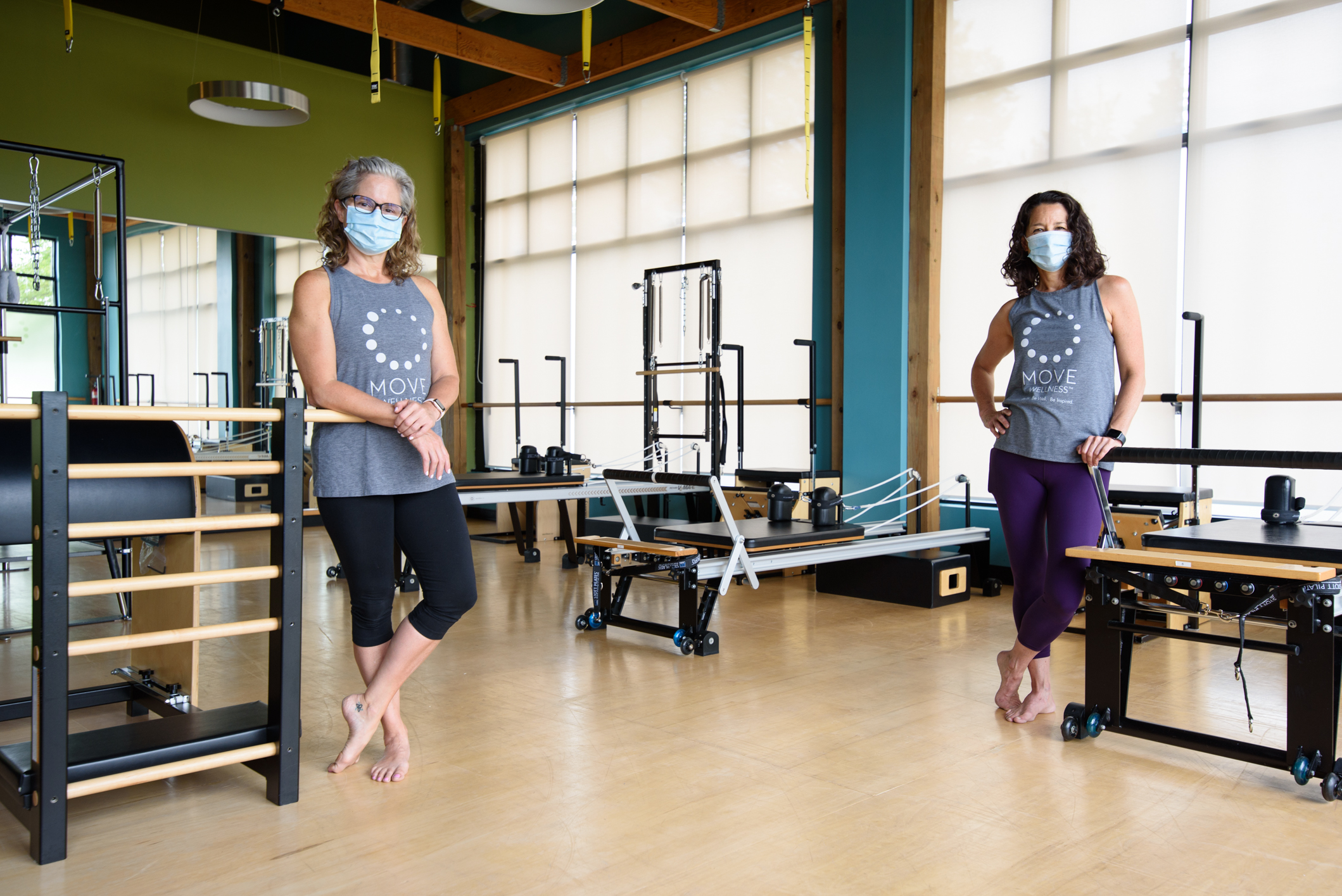Including movement into your daily routine can help promote better bone and muscle health by building strength and endurance. You have many options when it comes to exercise, including walking, swimming, and Pilates.
Many people have a preconceived idea that Pilates is only for young, extremely fit people, but the reality is that Pilates is suitable for all bodies at any stage of life. At MOVE Wellness, we’ve helped both men and women of all ages (including clients in their sixties and seventies!) incorporate Pilates into their routine to safely strengthen their body and support life’s activities.
Whether you want to workout in the comfort of your home or visit a studio, there’s a Pilates class or session that can fit your unique fitness needs and goals.
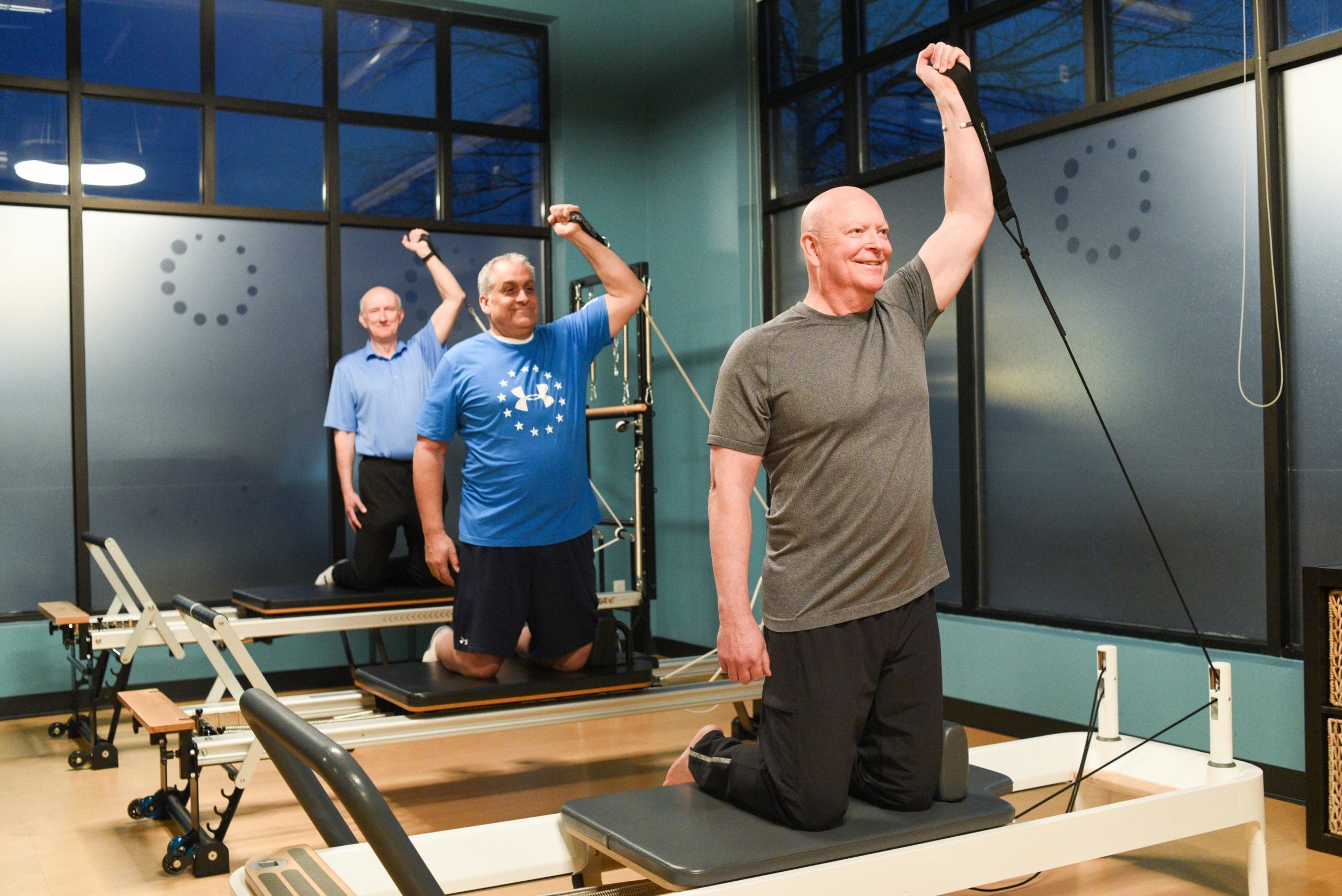
What is Pilates?
Pilates is a system designed to help you strengthen and mobilize your body. There are a variety of exercises that target strength and mobility for the whole body, always initiating with the core. They can be done on a mat or Pilates equipment strategically designed to allow for the fullest expression of movement. Some pieces of equipment you would likely find in a Pilates session include the Reformer, Cadillac, chair, and barrel.
What is mat Pilates?
Mat Pilates exercises require you to stabilize your body without equipment and tend to focus more on core work. You can practice the original 34 Pilates exercises in this classic Pilates mat sequence.
Interested in learning more? Try online mat Pilates classes with your first livestream class FREE!
What is reformer Pilates?
Reformer Pilates is done on a rolling platform with springs that add resistance to your Pilates workout. Springs can be added or taken away to provide different levels of resistance as the platform, called the “carriage,” is pushed or pulled along the frame.
Working on the Pilates reformer allows for more dynamic movement that can train many parts of the body in different ways. Reformer parts can also be adjusted to your body size and level of skill, so it’s a great option for beginners!
Want to give Reformer Pilates a try? If you live in the Ann Arbor area, you can take a small group Reformer Pilates class at our studio. These classes are limited to six students for more personalized attention.
What are the benefits of doing Pilates exercises?
Pilates can help strengthen the body and improve stability and peripheral mobility. These improved fitness levels can help prevent injury and give you greater ease of movement through a full range.
This system can also relieve low back pain and the postural effects of sitting. It is a safe weight-bearing exercise that can mitigate symptoms of osteoporosis/osteopenia, and there is mounting research that Pilates supports a number of pathologies, postural issues, and is an effective method for whole body strengthening.
Whatever your conditioning goal, Pilates is an efficient, effective, and safe way to increase your flexibility, develop your core, and release tension.
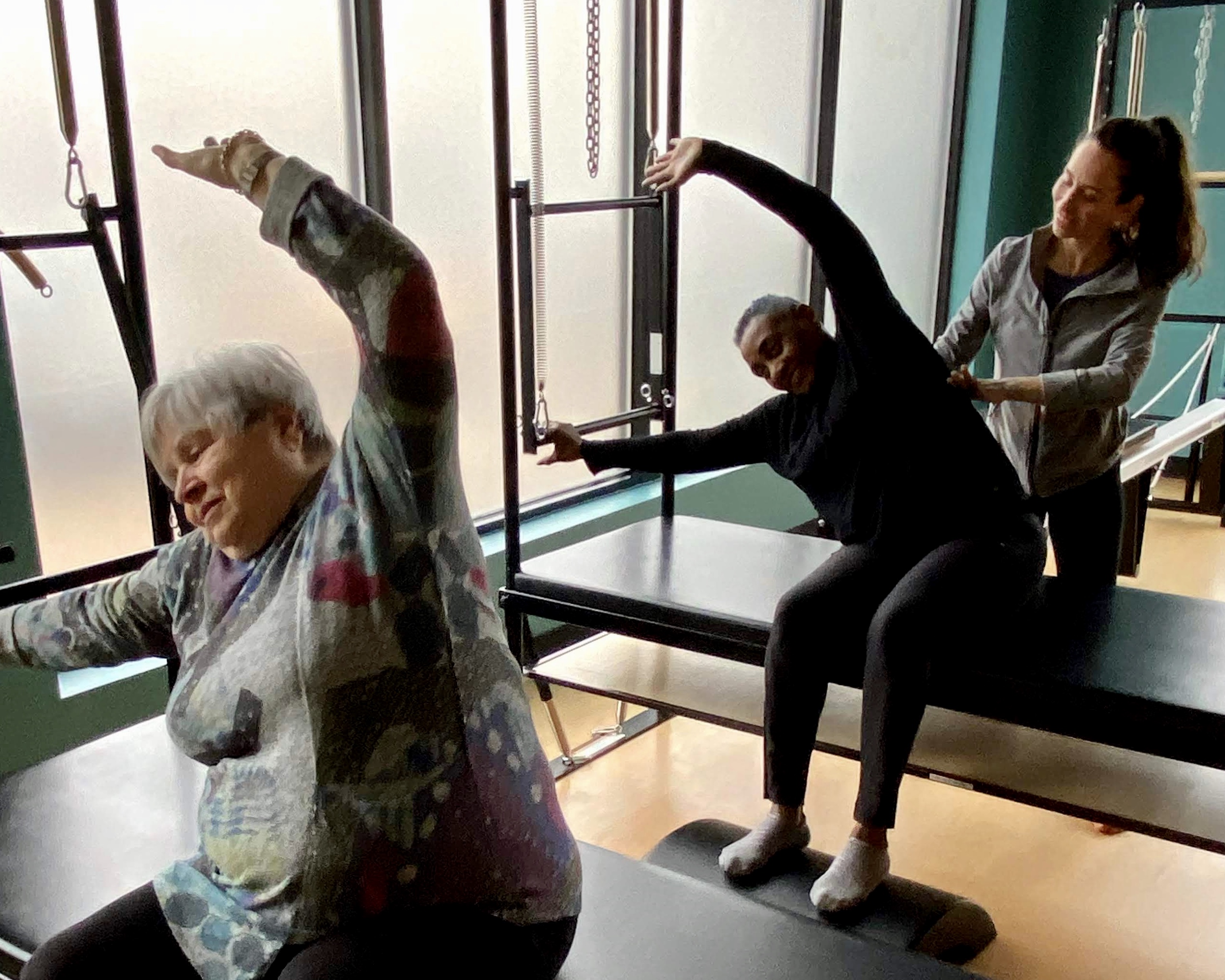
Which is better, Pilates or yoga?
Pilates and yoga both have benefits for those who practice it, regardless of age or experience level. The practice that works best for you will depend on your individual fitness goals. The benefits of yoga, for example, include stress reduction, increased blood circulation, flexibility, strength, improved sleep patterns and relaxation.
Beginning a Pilates practice
Starting a new movement system can feel intimidating. At MOVE Wellness, we take the time to learn about you 一 including your current fitness level, goals, and any limitations or injuries you may have 一 so we can support you on your personal fitness journey. We can then make recommendations about which classes or private trainers would work best for your unique situation.
For example, our livestream and in-studio Pilates classes are organized into six levels to help our clients move confidently and comfortably through their personal fitness journey: Gentle, Intro, Level 1, Level 2, Level 3, and Advanced. Most of our clients start with beginner Pilates classes so they can learn the foundational principles, which are designed to layer and build on each other as the student progresses.

You also have the option of private sessions, where you work one on one with a trainer who will create a custom workout to help you achieve your goals and provide support, motivation, and accountability. These are available both virtually and in-person.
Regardless of whether you’re alone or in a group, you will be led by a member of our experienced team. We’re proud to have some of the most experienced movement trainers, fitness instructors and coaches in Ann Arbor, who will work with you to bring out the very best in your body. Our trainers are credentialed in their areas of expertise and will even work in partnership with other health experts in your life, including doctors and physical therapists, to ensure your workouts are safe and highly effective.
Ready to get started? Our introductory session includes an intake assessment, 50-minute private session, and customized movement recommendation plan, as well as your first livestream class free! Clients who would prefer a small-group class are invited to try an introductory class.
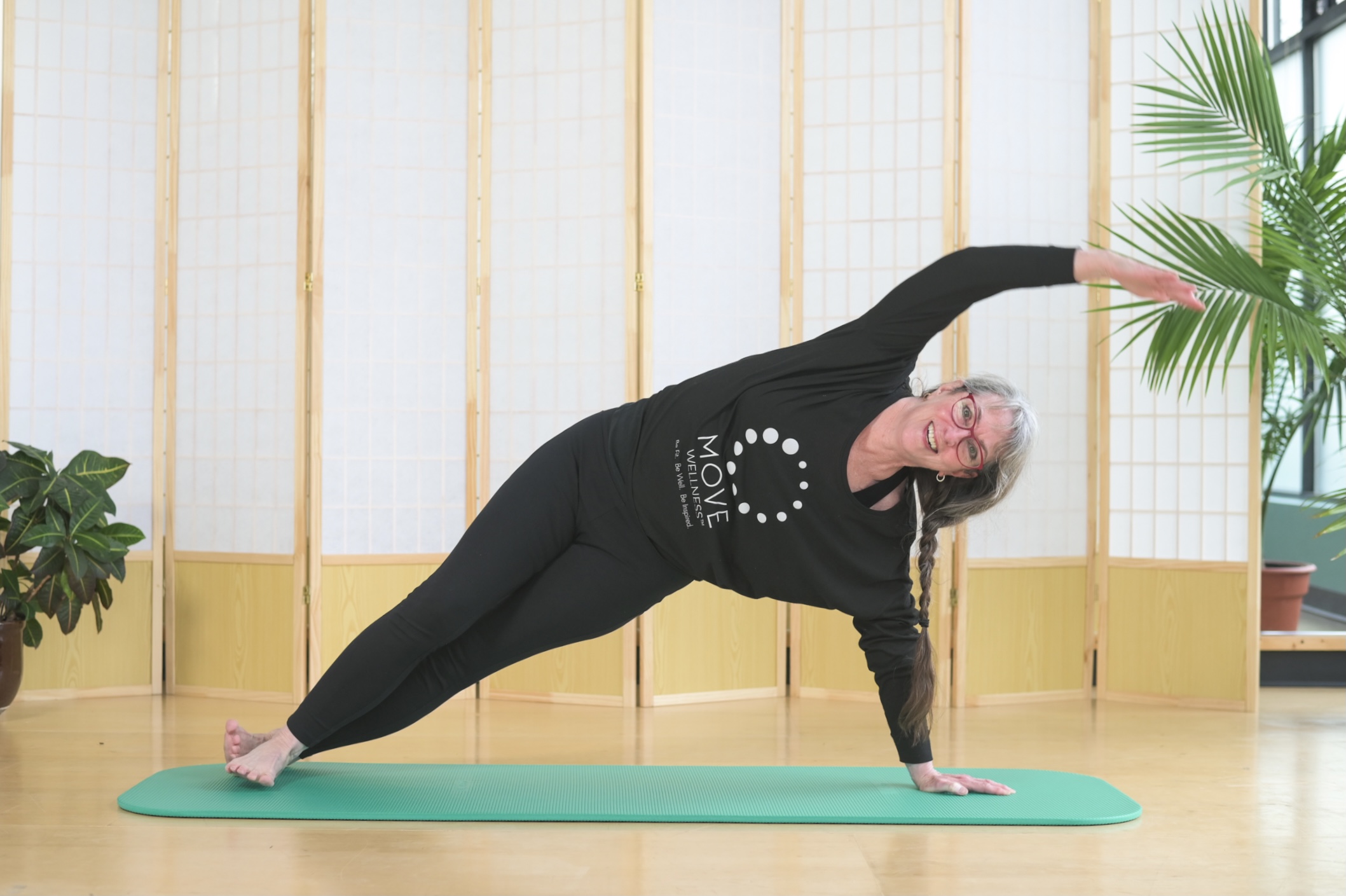
Pilates classes near you
The MOVE Wellness fitness studio is conveniently located on Jackson Road near I-94 in Ann Arbor, Michigan.
We also offer a number of online options for clients who don’t live nearby or who prefer to workout at home. These include:
- Private training — available in-studio or virtually via Zoom.
- Small-group classes — our Pilates Essentials Class ($29) is a fun, safe space to try something new.
- Livestream classes — over 30+ professional studio classes, including Pilates, yoga, barre, and more. This gives you a variety of fresh content each session to stave off boredom, and the motivating energy of live instruction to keep you moving.
- MOVE On Demand — pre-recorded class content, no television provider needed. Access your content whenever you want.
- MOVE Wellness on YouTube — a wide variety of free workouts on Pilates, yoga, and special topics like mobility.
